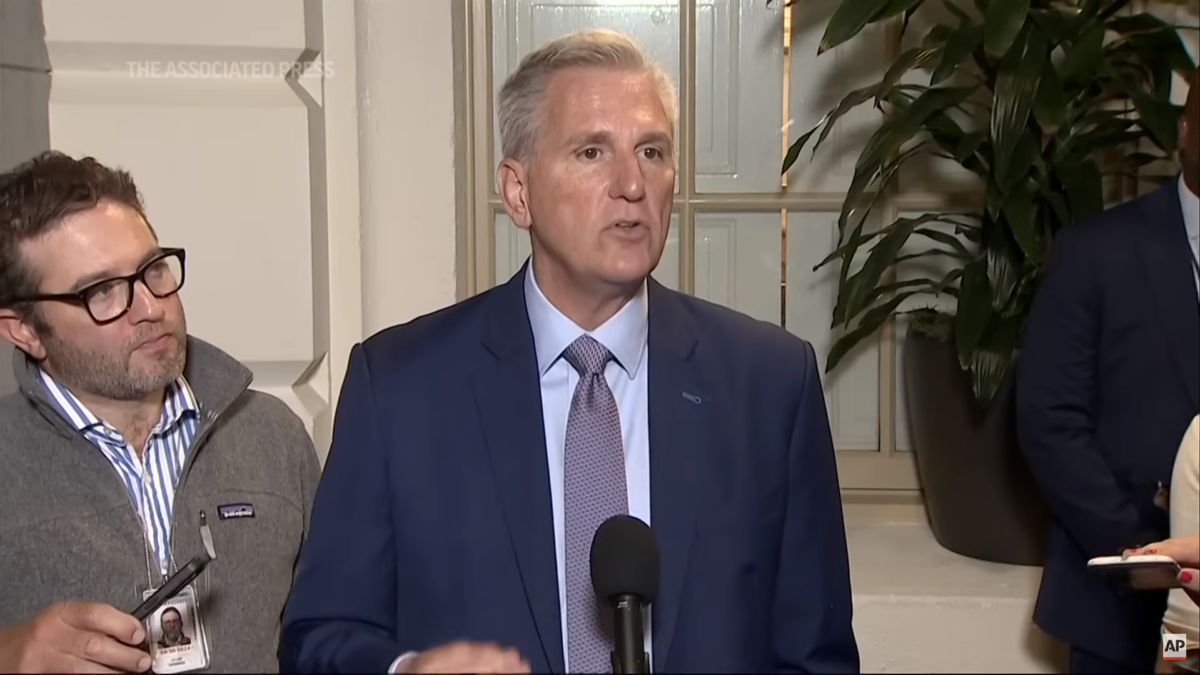Vladamir Putin isn’t the only one seeking to fulfill corrupt ambitions while Joe Biden is asleep at the wheel of his presidency. Congress recently passed another omnibus spending package. It left taxpayers scratching their heads, while D.C. insiders and career politicians laugh their way to the bank, thanks to the 367-page surplus of earmark spending requests included in the bill totaling approximately $4 billion.
The $1.5 trillion government funding bill signed into law by President Biden is six months late and packed with nonsensical, state-specific projects for which federal taxpayers should not be on the hook. Congress has hedged its bet, hoping that the American public will be too distracted by Russia’s invasion of Ukraine and the aid the bill sends Ukraine to notice lawmakers’ dubious attempt to snatch their tax dollars for things like lobster pot removals in Connecticut and LGBT senior housing.
Federal budget appropriations do not exist to pad the pockets of special interests or to fulfill lawmakers’ local pet projects. To use them in such a way is shameful.
While aid to Ukraine is important and urgent, its addition to an omnibus bill meant to fund the government through the next fiscal year is strange. A more thorough examination of the motivations behind its inclusion reveals an alarming truth.
Policymakers whose tanking approval ratings threaten their job security — thanks to policy fails that have led to rampant inflation, shrinking paychecks, skyrocketing gas prices, and the dream of homeownership becoming further and further out of reach for many hardworking Americans — are capitalizing on an opportunity amid the pressure of a government shutdown and an international catastrophe to pull a fast one on taxpayers and fund their pet projects.
If aid to Ukraine was the most important and urgent item on the legislative docket, the past-due 2022 federal government funding bill should have been passed independently. But instead, even though 62 percent of Americans don’t want to go to war in Ukraine, Congress is using the crisis to distract from a load of earmarks.
Powerbrokers in Washington apparently do not think Americans will notice the egregious spending provisions in this bill. To them, the “Wizard of Oz” approach will leave Americans satisfied, feeling as though the United States helped Ukraine while averting a shutdown. The American people will be left to foot a bill, however, that is much larger than they realize, with $4 billion in needless spending that is virtually meaningless to the average American.
Some of the more egregious earmarks in the bill include Sens. Tom Carper and Chris Coons of Deleware requesting $2 million to address renewable energy and reducing inequity to access to solar power. Rep. Colin Allred of Texas requested $1 million for LGBT-friendly affordable senior housing, while Sens. Angus King and Susan Collins asked for $765,000 to plan for “the future of Maine’s lobster industry.”
From Oregon, Rep. Kurt Schrader, Sen. Jeff Merkley, and Sen. Ron Wyden requested $100,000 to research “whale entanglement risk reduction,” and Merkley and Wyden sought $800,000 for wildfire smoke research and practice in the state.
An earmark by Sens. Richard Blumenthal and Chris Murphy seeks $569,000 to remove derelict lobster pots in Connecticut. Massachusetts Sens. Elizabeth Warren and Ed Markey requested $995,000 for “grid resistance and equity in the energy transition.”
This is what the return of earmarks looks like. Congressional leadership is not focused on the issues Americans care about. The reality of funding “normal government operations” is that funding is very questionable and has become a cash grab for elected officials. We need to change that drastically or future generations of Americans will pay severely for our fiscal irresponsibility.









